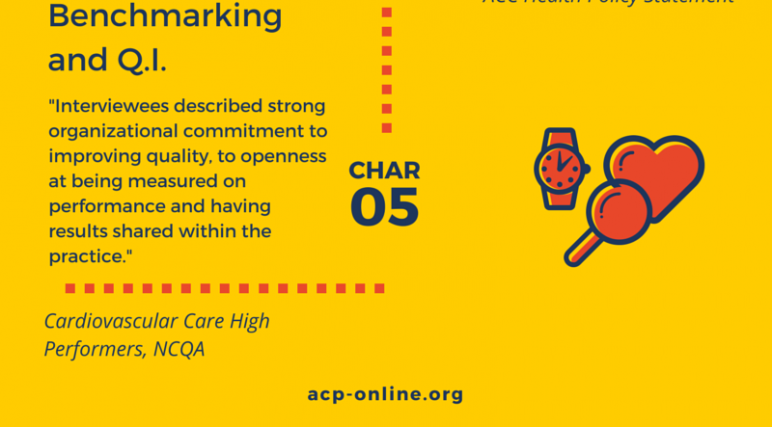Is it obvious? Highly effective cardiovascular teams demonstrate commitment to cardiovascular quality improvement.
In a 2014 report entitled "Cardiovascular Care High Performers," the National Committee for Quality Assurance detailed the importance of benchmarking and continuous cardiovascular quality improvement.
What is the practice culture of effective cardiovascular teams, according to the report? It's characterized by a "strong organizational commitment to improving quality, to openness at being measured on performance and having results shared within the practice, to working on closing gaps and to trying new strategies to engage patients."
Commitment and openness, especially to being measured, sharing results, and working on closing quality gaps, has been proven to improve outcomes, from a single group to an entire state.
Actionable data makes the difference.
A 2014 study published in Healthcare detailed how initiatives in Wisconsin and California to collect and publicly share performance data have improved cost and quality of care simply by "making available accurate, actionable data."
The Wisconsin Collaborative for Healthcare Quality was established for this purpose in 2003, and a cohort study of its members found that "providers in WCHQ who publicly report outcomes significantly improved measures related to diabetes, coronary artery disease, uncomplicated hypertension, and screening and preventative measures."
Are you open to being measured? To sharing?
Openness to being measured not only indicates organizational commitment to cardiovascular quality improvement, but it also creates data that can be used to identify best practices.
What does this require at an organizational level? "Dedicated resources to understanding patterns, to sharing information, to reaching out to physicians in the health plan or practice and to engaging patients," says the NCQA report.
High-quality data is very important, as is analysis of the data to identify gaps and areas for improvement. (NCQA)
